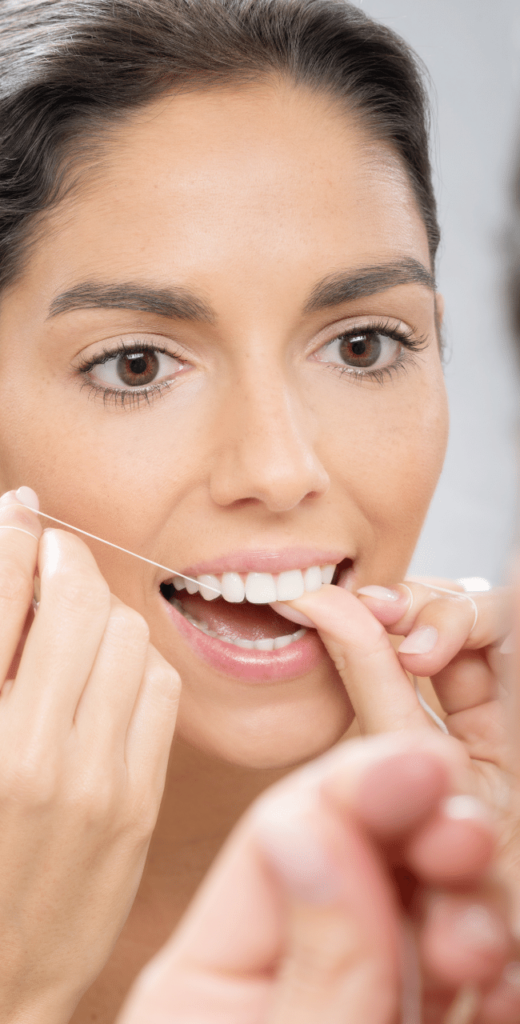
A beautiful, healthy smile that lasts a lifetime is our ultimate goal when treating patients. Your personal home care plays an important role in achieving that goal.


Use other dental aids as recommended by your dentist or dental hygienist: Interdental brushes, rubber tip stimulators, tongue cleaners, irrigation devices, fluoride, medicated rinses, etc., can all play a role in good dental home care.
Buy toothbrushes with soft bristles. Medium and firm ones can damage teeth and gums. Use soft pressure, for 2 minutes, two times a day.
Both powered and manual toothbrushes clean teeth well. Manual brushes with mixed bristle heights or angled bristles clean better than those with all flat, even bristles. Powered toothbrushes may be easier if you have trouble using your hands.
Set a reminder to replace your toothbrush every 3-4 months. Toss it sooner if the bristles look bent or splayed out. Bent bristles don’t clean as well. (They’re also a sign you may be brushing too hard.)
Most toothpastes will clear away bacteria growth and acids from food and drinks. Toothpastes with the American Dental Association (ADA) Seal of Acceptance always have fluoride, which strengthens and protects teeth. If you want a non-fluoride option, stores carry toothpastes and powders made with natural ingredients that don’t have ADA testing and approval.
If cold or hot food or drinks make you cringe, pick a toothpaste for sensitive teeth and let your dentist know.
There’s no getting around the need to get around your teeth daily with dental floss. It clears food and plaque from between teeth and under the gumline. If you don’t, plaque hardens into tartar, which forms wedges and widens the space between teeth and gums, causing pockets. Over time, gums pull away and teeth loosen.
Either waxed or unwaxed floss will do the job. Using floss picks or interdental brushes is another easy option.
Mouthwashes for cavity protection, sensitivity, and fresh breath may help when you use them with regular brushing and flossing — but not instead of daily cleanings. Your dentist can recommend the best type for you.
Some people need twice-daily rinses for gum health or alcohol-free washes for dry mouth.
Kids under 6 shouldn’t use mouthwash to avoid the chance of them swallowing it.
Fluoride helps make teeth strong and prevents decay. The American Academy of Pediatrics, the American Dental Association (ADA), and the CDC all agree that kids should use fluoride toothpaste for brushing, taking care not to swallow it.
Adults benefit from using fluoride to protect their teeth, too.
Some people need twice-daily rinses for gum health or alcohol-free washes for dry mouth.
Kids under 6 shouldn’t use mouthwash to avoid the chance of them swallowing it.
Yes, sweets and foods with acid, like candy and soda, could stick to teeth and lead to cavities. Smoking and chewing tobacco can cause oral cancer and gum disease.
While teeth are strong enough to chew ice and tear open packages, this can break them and stress your jaws. Gritting or grinding down on teeth when you’re stressed may crack them.
Biting your nails is another bad habit. It pulls your jaw out of position and changes how your teeth fit together.
Please feel welcome to contact our friendly reception staff with any dental inquires or to book an appointment.


